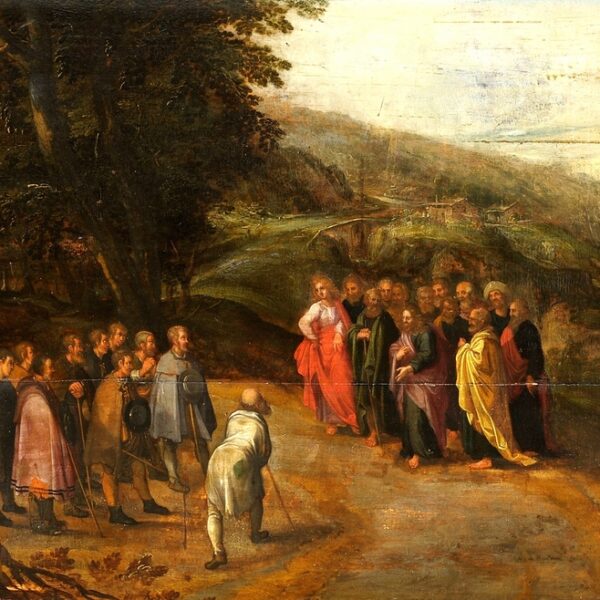Judging: a forbidden sin or the Christian’s divine duty?

Justice vs. Charity: when the church and government switch roles
November 4, 2024
“This was your life!” The Great White Throne and the Judgment Seat of Christ
November 22, 2024“Do not judge.” This is the one bible verse every atheist and backslider knows by heart.
But do you know that there are more scriptures instructing the Christian to judge than there are not to judge?
Bible teacher Derek Prince has an excellent little booklet that expounds on this theme called Judging: When? Why? How?
The word translated “judge” can mean to discern, to condemn, and to pronounce judgment on someone or something. In this particular post and within this series on the judgments of God, I want to focus on two passages of scripture that give insight into some of the loftiest responsibilities of Christians, and yet highlight how very far below this call most of us are living.
Proverbs 31:8 says, translated from the Septuagint, “Open thy mouth for the Word of God, and judge all men soundly.” The Aramaic bible in plain English says it this way: “Open your mouth with the word of truth and judge all the sons of evil.”
Did you ever speak the truth, heart pounding, knowing it would cost you? Perhaps this was in an academic or work setting, and the teacher or boss might dole out retribution in some form.
Have you attended a town hall or school board meeting? Recently, I watched a slight, unassuming man humbly plead for decency and protection of children via what they’re exposed to in the classroom and school library, only to see his opponents viciously blister him for his “hate.”
Why? 
Do you realize that when you speak the truth, particularly in an atmosphere that is increasingly hostile to it, that you are pronouncing a judgment against the evil one? The angry reaction that ensues is from those most under his dominion.
The aroma of death
Proverbs 31:8 has a New Testament counterpart when Paul explains to the church that they are evoking a response from those around them. “For we are to God the sweet aroma of Christ among those who are being saved and those who are perishing. To the one we are an aroma that brings death; to the other, an aroma that brings life.” (2 Corinthians 2:15-16, NIV).
Psalm 149 says
5 Let the godly exult in glory;
let them sing for joy on their beds.
6 Let the high praises of God be in their throats
and two-edged swords in their hands,
7 to execute vengeance on the nations
and punishments on the peoples,
8 to bind their kings with chains
and their nobles with fetters of iron,
9 to execute on them the judgment written!
This is honor for all his godly ones.
Praise the Lord!
What a thrilling passage! The honor of God’s faithful servants is to use worship and truth (depicted here as in Hebrews as a two-edged sword) to execute vengeance and punishments on nations and their rulers (in the New Covenant, chiefly but arguably not exclusively on powers and principalities ruling the leaders and regions [see Ephesians 6:12). As E. W. Kenyon suggests, it is God who writes the sentences (Colossians 2:15), but we through our executive power in the name of Christ carry out the judgments with our words. We carry this out in our prayers and worship, but also by speaking truth concerning unpopular ideas.
Stephen, full of faith and the Holy Spirit spoke scathing truth to the Jewish authorities (Acts 6:8-7). This enraged them to the point of murder. It is noteworthy that Stephen was not concerned about diplomacy, .nor encumbered with our generation’s commitment to political correctness. He spoke as the Spirit gave him utterance, and his face was radiant and his last words toward his perpetrators were forgiveness (v. 60).
The way to wear out Satan
So you see for the Christian it is not enough simply to live in quiet integrity. Fervent, aggressive prayer against the enemy in the knowledge of how Christ through Calvary whipped him and his nobles for our sake – that is, foremost that we might see Christ’s kingdom manifest here on earth (Matthew 6:10) and destroy the works of the devil (1 John 3:8), is the daily duty of every serious disciple of Christ. But even that is not enough.
Scripture makes it clear that the Lord requires His faithful ones to open their mouths in the public square and speak truth. Moses struggled to do it as did pre-Pentecost Peter (Matthew 26:70). Paul prayed that he might be given boldness to speak (Ephesians 6:19). Barnabas and Paul in their boldness rebuked their fellow Jews for rejecting the gospel and got thrown out of the region (Acts 13:50), but this spread the gospel to the gentiles.
The heroes of church history opened their mouths against the contrast of culture. From Athanasius to Wilberforce, and Bonhoeffer to Barth, none of us get an exemption. If we deny Christ before men, He will deny us before the Father (Matthew 10:33).
Jesus is the High Priest of our confession (Hebrews 3:1). The remission of disease and the remission of sin both involve speaking the truth when we’d rather be silent (1 John 1:9, James 5:14-16). Communion can be impeded by a failure to speak up when difficult (1 Corinthians 11:28, Matthew 5:24).
“[The saints] overcame Satan by the blood of the Lamb and by the word of their testimony and they did not love their lives unto death” (Revelation 12:11).
Resources:
https://www.nationalww2museum.org/war/articles/sophie-scholl-and-white-rose





